Every hotel hallway smells the same after a while. Your pillow is different, your light switches are in weird places, and your meals come from beige conference trays. If you are living this rhythm, you already know: feeling good every day is not luck, it’s a practice. People who travel for work don’t just need to manage, they need to outsmart the grind. That means sleep that matters, food that fuels, and movement that wakes you up instead of wearing you down. Here is how to build the kind of daily structure that survives TSA lines and time zone math.
Sleep Hygiene on the Road
You can’t function if you are waking up five times a night to unfamiliar noises and hotel AC blasts. That is why it is worth creating a ritual that travels with you: earplugs, a sleep mask, and even travel-size lavender spray if it helps. What works best is consistency. Experts highlight how the best strategies for restful sleep during travel often center around building habits that cue your brain it’s time to shut down. Skip alcohol before bed, dim the lights early, and resist the urge to scroll. In this lifestyle, deep sleep isn’t indulgent, it’s your edge.
Eating Well Away from Home
When you are surrounded by grab-and-go temptation, nutrition starts to feel optional. But skipping meals or defaulting to airport snacks tanks your energy faster than a red-eye with no WiFi. The trick is planning like someone who knows they will be surrounded by bad options. To focus on maintaining nutrition on business trips, think fiber, protein, and hydration to create a buffer against the sugar crashes and salty regrets. Hotel breakfast? Hard-boiled eggs and fruit. Late-night dinner meeting? Eat half, save half. Your body is not a rental car; fuel it like it matters.
Staying Active in Transit
Your spine wasn’t designed for back-to-back flights and boardroom chairs. And while it is easy to say, “I’ll hit the hotel gym,” let’s be real, some days that treadmill is as mythical as a unicorn. Instead, bring the gym to you. There are smart ways to build on-the-go workout routines using resistance bands, hotel furniture, or even your own body weight. Ten-minute movement bursts between calls can reset your mood and beat the slump. You don’t need a gym—you need motion.
Managing Stress on the Move
Travel magnifies pressure. There is the client pitch, the missed connection, the terrible hotel mattress, the app that won’t load. But stress, when expected and acknowledged, becomes something you can plan around. By establishing coping mechanisms for travel stress—like breathwork, guided meditations, or simply blocking five minutes of silence—you stop letting circumstances call the shots. It is not about eliminating stress; it is about responding before it swallows you. You’ve got enough on your plate. Protect your headspace like it’s carry-on only.
Choosing the Right Home Base
Where you sleep shapes how you live. A cramped hotel room with dim lighting and no kitchen can undo your progress faster than a red-eye flight and a vending machine dinner. That is why more traveling professionals are opting for flexible-stay housing that supports real life, not just short stays. Fully-furnished spaces with kitchens, laundry, work areas, and reliable WiFi give you space to move, cook, stretch, and sleep like a human being again. Providers like Stay Fit offer fully-furnished residences throughout the U.S.; homes that make long-term travel feel less like survival and more like living.
Elevating Your Career Through Education
Being constantly in motion does not mean you are standing still. For traveling professionals looking to level up, returning to school on your terms can crack open the next chapter. If you work in business, an MBA can help you develop skills in management, marketing, finance, and strategic planning. Programs like a master of business administration allow you to learn from anywhere, even if “home” this week is a suite in St. Louis. Regardless of industry or career track, online degrees make it possible to advance while staying mobile.
Networking on the Go
You don’t need a conference badge to make a connection. Some of the best professional relationships happen over airport coffees, shared Lyfts, or quiet lobbies after a meeting. The key is being ready to talk—but more importantly, ready to listen. By leaning into building connections during business travel, you keep your circle expanding even when your roots aren’t in one place. Follow up quickly, be generous with your insights, and never underestimate the power of a well-timed compliment. Being on the move doesn’t limit your network—it multiplies it.
You don’t need perfect conditions to feel your best. You need habits that travel, a mindset that flexes, and enough grit to keep going even when the plane’s delayed and your salad costs $23. Working on the road asks more from you—but it can give more, too, if you let it. When you eat with intention, sleep like it’s your job, and move like your body matters, you are not just surviving the trip—you are winning it. Make your routine your anchor. Wherever you land, you will still feel like yourself.
Dorothy Watson grew up with a single mother who wasn't properly diagnosed with bipolar disorder for over a decade. In her mother’s honor, she created Mental Wellness Center to support those who are working toward improving their mental health.

